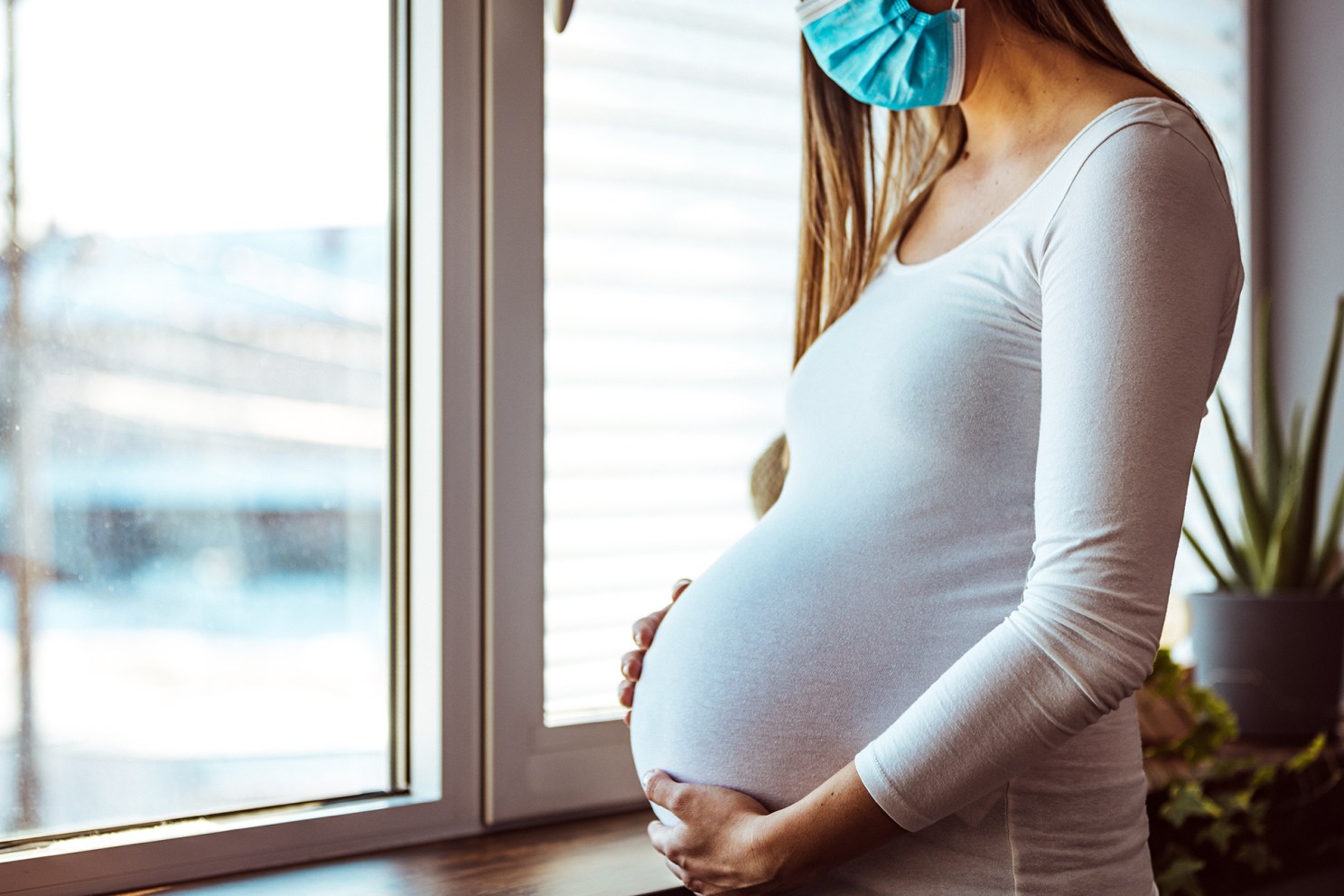COVID in pregnancy raises child’s risk for developmental disorders
Infection poses greatest threat during third trimester, according to study analyzing more than 18,000 births during pandemic peak

Getty Images
Children born to mothers who had COVID-19 while pregnant face an elevated risk of developmental disorders by the time they turn 3 years old, including speech delays, autism, motor disorders, and other developmental delays, according to new research by investigators at Mass General Brigham. The findings are published in Obstetrics & Gynecology.
“These findings highlight that COVID-19, like many other infections in pregnancy, may pose risks not only to the mother, but to fetal brain development,” said senior author Andrea Edlow, a maternal-fetal medicine specialist in the Department of Obstetrics and Gynecology at Mass General Brigham. “They also support the importance of trying to prevent COVID-19 infection in pregnancy and are particularly relevant when public trust in vaccines — including the COVID-19 vaccine — is being eroded.”
“These findings highlight that COVID-19, like many other infections in pregnancy, may pose risks not only to the mother, but to fetal brain development.”
Other maternal infections during pregnancy have been linked to risk for a range of neurodevelopmental diseases during childhood, and animal studies have shown that immune activation during pregnancy disrupts normal fetal brain development and offspring behavior. To assess the effects of SARS-CoV-2 infection during pregnancy, investigators analyzed data on 18,124 live births at Mass General Brigham within the peak COVID-19 window of March 2020 to May 2021.
The investigators studied 18,124 mother-child pairs. Among the 861 children whose mothers were SARS-CoV-2–positive during pregnancy, 140 (16.3 percent) received a neurodevelopmental diagnosis by age 3, compared with 1,680 (9.7 percent) of the 17,263 remaining children from SARS-CoV-2–negative pregnancies. After adjusting for other influencing factors, SARS-CoV-2 infection during pregnancy was associated with 29 percent higher odds of a neurodevelopmental condition in children.
The investigators also found that males were at higher risk than females. Risk was greatest when infection occurred during the third trimester of pregnancy.
While reducing risk is important, co-senior author Roy Perlis of the Mass General Brigham Department of Psychiatry noted, “The overall risk of adverse neurodevelopmental outcomes in exposed children likely remains low.”
First author and maternal-fetal medicine specialist Lydia Shook added, “Parental awareness of the potential for adverse child neurodevelopmental outcomes after COVID-19 in pregnancy is key. By understanding the risks, parents can appropriately advocate for their children to have proper evaluation and support.”
This study was supported by the National Institute of Mental Health and the National Institute of Child Health and Human Development.





